Developing Informed Student Leaders at the Ed100 Academy Day 2
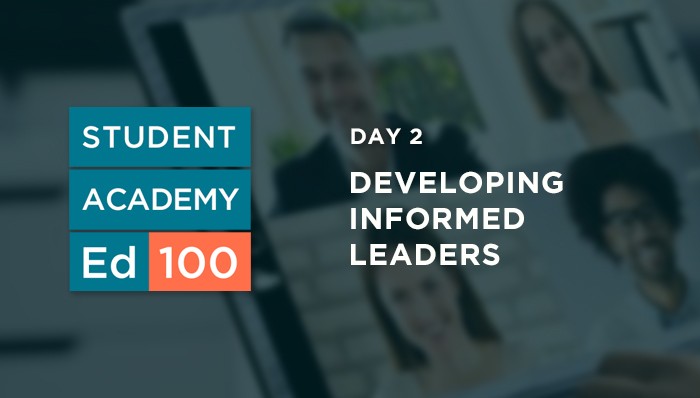
Diving In
This post continues our coverage of the 2020 Ed100 Academy for California Student Leaders. Our previous post in this series focused on the first day of the conference, which provided participants with an overview of the education system to ensure they understood the basics. (The theme was Education and Equity.)
On day 2, the theme was Developing Informed Leaders. The sessions, described below, were filled with ideas for how student leaders can get involved. Exceptional speakers presented tools and resources students need to be informed leaders. There was no sugar-coating — the tone was practical and direct. Students were exposed to resources that even many education system insiders don't know about.
|
|
10am - noon |
2pm - 4pm |
|---|---|---|
|
July 20 Monday |
① California's system |
② Equity in Education |
|
July 21 Tuesday |
③ Student Leadership |
④ Tools for Informed Leaders |
|
July 22 Wednesday |
⑤ Thinking Bigger |
⑥ Learning from History |
|
July 23 Thursday |
⑦ Working Together |
|
The Morning Session: Student Leadership
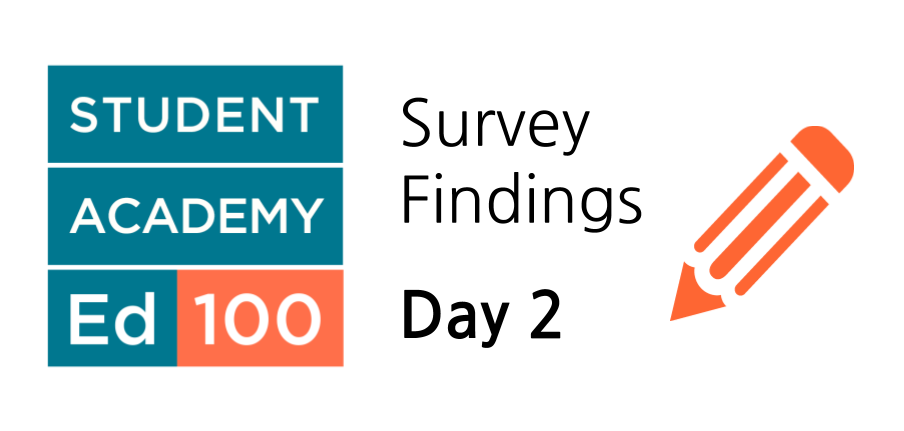
Each day of the conference we conducted a survey that included at least one major open-ended question: What are the three most important things you learned from today's sessions? If you want to get a feel for the robustness of the conference, browse through the responses.
Three things I learned: What are the three most important things you learned from today's sessions? See 172 responses
The morning session introduced participants to six remarkable leadership organizations that involve student leaders. Change can happen when passionate students work together — which is why these partner organizations were essential to the conference. Students were urged to take notes in their journal in order to make an important decision: select just two of these organizations to learn more about them. (This would happen on the fourth day of the conference.)
Before getting down to business, though, students were greeted by a special guest: actress and activist Mishel Prada.
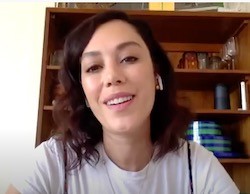
She emphasized to students the importance of sharing their voice. Being a student comes with power, she said: Power in voice, power in numbers, and power in the authenticity of their experience as a student. Students have a responsibility "own that power" and lead in making real change.
Alvin Lee and Michelle Alas, GENup
Alvin Lee and Michelle Alas kick-started the conference day by sharing GENup’s organization, which Alvin described as "the most comprehensive network of student leaders in education advocacy in California." GENup works to create concrete policy reform by working with school board members. Members of GENup get involved directly with the community and emphasize grassroots advocacy with local community outreach, organizing, and developing partnerships with other youth-led and adult organizations.
Alvin’s presentation directed attention to a major issue of the California education system: a lack of structure for student leadership. Without a solid foundation and pathway for leadership, Lee said, “Inequity blocks out the voices of the youth, preventing any reform.” He urged students to get involved with an organization that hears student voices and amplifies them.
Based on the presentation below, 257 students at the conference opted in to connect with GENup.
Angel E. Palencia Ramos and Rayna Smith, Californians for Justice
Angel E. Palencia Ramos, a Latinx youth organizer, was joined by Rayna Smith, his colleague and activist from Oakland, to present Californians for Justice (CFJ), a statewide youth-powered organization focused on the fight for racial justice.
Californians for Justice works to fight for a number of issues affecting youth. Among these issues are youth engagement, equitable school funding, and closing the achievement gap. CFJ emphasizes the value of empowering youth to solve these issues and create the schools they deserve.
Angel and Rayna brought participants’ attention to the need for quality staff members and creating school relationship-building. Teachers must have resources and training to provide an equitable education for all their students. Schools should prioritize spaces for relationship-building between students and teachers to ensure greater motivation and enthusiasm in school.
141 students at the conference opted in to connect with CFJ.
Irene Rivera, ACLU of Southern California
Irene Rivera is the Education Policy Advocate and Organizer at the ACLU of Southern California. She announced the success of the first ACLU Youth Liberty Squad made up of high school students working with ACLU leaders to guide and lead their work. With students’ input, the ACLU was able to understand the issues and concerns of students in Southern California. Participants were very eager to get involved with the Youth Liberty Squad, though the program is (so far) unique to the Southern California area. This didn’t stop the participants — they reached out with excitement about extending the Youth Liberty Squad statewide.
Irene works on the Education Equity Project, which focuses on student rights, school district accountability, and identity discrimination. The project works with marginalized and under-resourced communities to create more just schools. They also help to run the LAUSD school police department. To get involved, Irene encouraged students to volunteer with the ACLU, join the Youth Liberty Squad, and apply for ACLU internships.
219 students opted in to connect with ACLU-SoCal.
Zachary Patterson, California Student Board Member Association
Zachary Patterson, now a rising high school junior, served last year as a member of the board of San Diego Unified school district. He introduced students to the California Student Board Member Association (CSBMA), which works to create a unified voice for students elected or appointed to board positions in California.
In his presentation with host Brenna Pangelinan, Zac explained what a student board member is and what they do. CSBMA creates a network of student board members to connect, to advocate, to provide curriculum support, and to expand California’s student board members.
Student board members put student experiences and decisions at the decision-making table, Patterson argued. Adults run the schools, but are not in them. Even the presence of student board members can help center board discussions on what is best for students.
Hear Zachary talk about the Ed100 Student Academy in the EdSource podcast "This Week in California Education."
Zac brought students’ attention to the fact that many school district boards lack student representation. Every school district that includes a high school should have a student board member listed alongside the other members of the board on the district website, but many don’t. Zachary encouraged students to check their district’s school board roster during the lunch break. "Only 500 signatures are needed to get a student on the school board — it’s easy!" he said. (For more about how, see the Ed100 blog.)
214 students opted in to connect with CSBMA.
Loreen Pryor, Black Youth Leadership Project
Loreen Pryor, a veteran legislative staffer, serves as President of the Black Youth Leadership Project (BYLP). She discussed her own activism and BYLP’s mission to address the needs of Black children on school campuses and beyond.
She told students about her constant appearances at School Board Meetings to address inequities and advocate for the rights of Black students in multiple school districts. BYLP advocates in school board meetings and works with Black students, for Black students. In addition to its Black Girls Support Network (BGSN) and Black Boys Support Network (BBSN), the organization welcomes non-Black allies.
102 students opted in to connect with BYLP.
Diego Bustamante and Elijah Tsai, California Association of Student Councils
Diego Bustamante and Elijah Tsai, both seniors at Lincoln High School in Stockton, encouraged students to develop their leadership skills with the California Association of Student Councils (CASC).
Elijah, CASC President, emphasized in his presentation that CASC is student-run and student-led. The organization’s purpose is “to improve the quality of life in the world by developing skilled, ethical and sensitive leaders of diverse backgrounds and cultures.”
Diego, the CASC Education Policy Director, stressed the importance of student advocacy and talking directly to policy makers. CASC aids students in their advocacy goals by teaching skills that are necessary to build effective policy proposals. The organization prides itself on providing leadership development programs that are run completely by students.
Students can be part of CASC by attending in-year conferences (now online) with the Student Advisory Board on Education (SABE), the Student Advisory board on Legislation in Education (SABLE), and the Youth Action Summit of California (YASC). Students can also attend local conferences. Diego and Elijah encouraged students to not only participate in a conference, but create their own, too!
265 students opted in to connect with CASC.
The Afternoon Session: Tools for Informed Leaders
After a two-hour lunch break to relax and reset, the afternoon session had a great line-up of speakers who focused on providing students with information about the education system and tools that could help them be effective leaders in it.
The first of those speakers was Sal Khan, the founder of Khan Academy. He had a lot to say, and his session was one of the most-anticipated and highest-rated parts of the conference. Rather than over-summarize, see Sal Khan's full presentation in this post.
Adam Ebrahim, California Teachers Association
As a member of Instruction and Professional Development of the California Teachers Association and a former high school teacher, Adam Ebhrahim knows just how dynamic and layered the education system is. He encouraged students to learn about those layers in order to be taken seriously in their role as leaders in rooms where decisions are made.
Students can fairly easily have an impact by getting involved at the school level with the English Language Advisory Committee, School Site Council, or Student Government. Making a difference requires asking or influencing at the right level — it's a matter of access and "power distance." At the district level, students can have access through the Local Control Accountability Plan Advisory Committee (LCAP), Special Education Advisory Committee, or Facilities Advisory Committee. Adam also encouraged students to create their own committees at both the school and district levels.
California's vast education system is constructed of overlapping layers with overlapping power: the Superintendent of Public Instruction, members of the California State Board of Education, the Governor, the education committees of the state Senate and Assembly, district superintendents, school board members, principals, teachers, union leaders, PTA leaders, and more. The system is dynamic. Each of these positions shares power and influence. Hundreds of thousands of adults play leadership roles in California's vast education system — but if they find their voice and understand the system, students can have a special type of leadership and power.
Carrie Hahnel, Opportunity Institute
Carrie Hahnel, a fellow from the Opportunity Institute, jumped right into the tools students need most to be impactful. Her presentation, “The Change-maker’s Toolkit,” was informative and engaging, and provided students with nuts-and-bolts rundown of tools and data sources that even many school board members aren't aware of.
|
The Change-Maker’s Toolkit |
|
|---|---|
|
1 |
Find the Policy |
|
2 |
Read the Plan |
|
3 |
Get Data about Students, Staff, Outcomes, and Finance |
|
4 |
Get Accountability Data |
|
5 |
Seek Promising Solutions |
Carrie asked students to write in their Leadership Insights Journal: What is one change you would like to see in your school and community? To make the change they want to see, students need to go through a number of steps to be informed and equipped.
She walked students through many government education policies and plans that directly affect their school experience. For example, school district policies are public information, but most don't know where to find them. In many cases, they can be found on a service known as GAMUT. She showed students where to look for their district's Local Control Accountability Plan (LCAP) and explained the essentials of the School Plan for Student Achievement (SPSA). These documents lay out the plans for how districts and schools will use funds.
Plans are great, but accountability data is where the public can see if schools and districts are doing their jobs. Carrie prompted students to look at their own district’s accountability data to see where they’re succeeding — or lacking.
|
Data Tools for Informed Student Leaders |
|
|---|---|
|
The best, deepest resource for real data about California schools, districts, and counties. The only place to get comparable facts about money, staffing, and diversity. (But severely underfunded and often delayed.) |
|
|
Not available on Ed-Data yet? Try slogging it out on DataQuest. |
|
|
The accountability system for California's school system. See results for schools, districts and for subgroups. |
|
|
Where to look for test results |
|
Knowledge is essential for being heard as a student leader. When you know your stuff, you’re harder to ignore. Carrie gave students valuable resources and links to fulfill each step in the “Change-maker’s Toolkit”. Read through Carrie’s presentation to learn more about the information students (and adults) need to be heard at the decision-making table. Knowledge is power and at the end of the day students must be able to present what they know by combining facts with examples, offering solutions, and sharing their story.
Troy Flint, California School Boards Association
Troy Flint from the California School Boards Association provided a run-down of what’s happening to schools amid the pandemic. As schools gear up for the 2020-2021 school year, a major question is how decisions will be made about when, whether and how to close or open schools to in-person instruction. What are student leaders’ role in the process?
Troy stressed the fluid nature of the challenge. Each county has its own unique problems and the conditions can be different in each of the 58 counties in California. Schools must have resources for students, teachers, and parents to access web-based learning. Reopening schools safely comes with many health and financial issues: smaller classes will need more classrooms and more teachers, older teachers are at higher risk, the cost of reopening is unfeasible in some districts, and more.
The LCAP is especially crucial this year, Flint emphasized, and it will be different than usual. More funding for schools will be necessary to ensure access to resources and to provide a quality and equitable education. The upcoming year will look different, but that doesn’t mean students should settle for a lesser education. The student voice is important to ensure this happens.
More to Come!

That’s a wrap for our recap of Day 2, “Developing Informed Leaders,” which emphasized ways for students to engage in schools as the system works today. In two weeks, our next post in this series will describe what happened on Day 3, which examined ways that the system might change in the future. The theme is Thinking Bigger.
Don’t forget to mark your calendar for the 2021 Ed100 Student Academy!
|
Learn More About the 2020 Ed100 Academy for California Student Leaders |
|
|---|---|
|
Program Guide: |
|
|
Preview: |
|
|
Day 1: |
|
|
Day 2: |
|
|
Day 3: |
|
|
Day 4: |
|
 Kaylee Nguyen, an undergraduate student at UC Berkeley, serves as
Director of Admissions for the Ed100 Academy for High School Student Leaders.
Kaylee Nguyen, an undergraduate student at UC Berkeley, serves as
Director of Admissions for the Ed100 Academy for High School Student Leaders.Tags on this post
Policy Student voiceAll Tags
A-G requirements Absences Accountability Accreditation Achievement gap Administrators After school Algebra API Arts Assessment At-risk students Attendance Beacon links Bilingual education Bonds Brain Brown Act Budgets Bullying Burbank Business Career Carol Dweck Categorical funds Catholic schools Certification CHAMP Change Character Education Chart Charter schools Civics Class size CMOs Collective bargaining College Common core Community schools Contest Continuous Improvement Cost of education Counselors Creativity Crossword CSBA CTA Dashboard Data Dialogue District boundaries Districts Diversity Drawing DREAM Act Dyslexia EACH Early childhood Economic growth EdPrezi EdSource EdTech Education foundations Effort Election English learners Equity ESSA Ethnic studies Ethnic studies Evaluation rubric Expanded Learning Facilities Fake News Federal Federal policy Funding Gifted Graduation rates Grit Health Help Wanted History Home schools Homeless students Homework Hours of opportunity Humanities Independence Day Indignation Infrastructure Initiatives International Jargon Khan Academy Kindergarten LCAP LCFF Leaderboard Leadership Learning Litigation Lobbyists Local control Local funding Local governance Lottery Magnet schools Map Math Media Mental Health Mindfulness Mindset Myth Myths NAEP National comparisons NCLB Nutrition Pandemic Parcel taxes Parent Engagement Parent Leader Guide Parents peanut butter Pedagogy Pensions personalized Philanthropy PISA Planning Policy Politics population Poverty Preschool Prezi Private schools Prize Project-based learning Prop 13 Prop 98 Property taxes PTA Purpose of education puzzle Quality Race Rating Schools Reading Recruiting teachers Reform Religious education Religious schools Research Retaining teachers Rigor School board School choice School Climate School Closures Science Serrano vs Priest Sex Ed Site Map Sleep Social-emotional learning Song Special ed Spending SPSA Standards Strike STRS Student motivation Student voice Success Suicide Summer Superintendent Suspensions Talent Teacher pay Teacher shortage Teachers Technology Technology in education Template Test scores Tests Time in school Time on task Trump Undocumented Unions Universal education Vaccination Values Vaping Video Volunteering Volunteers Vote Vouchers Winners Year in ReviewSharing is caring!
Password Reset
Search all lesson and blog content here.
Login with Email
We will send your Login Link to your email
address. Click on the link and you will be
logged into Ed100. No more passwords to
remember!





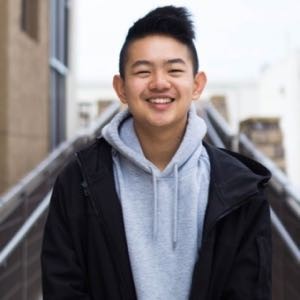

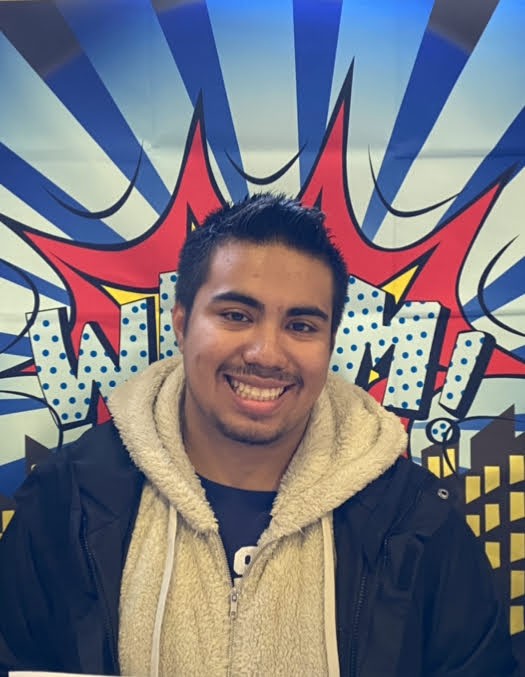


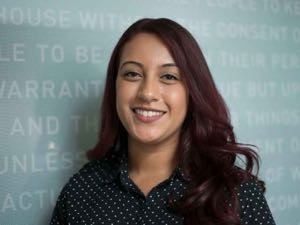
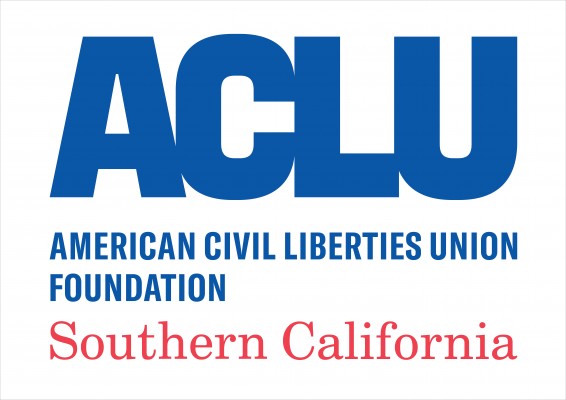
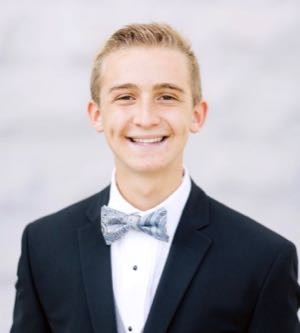
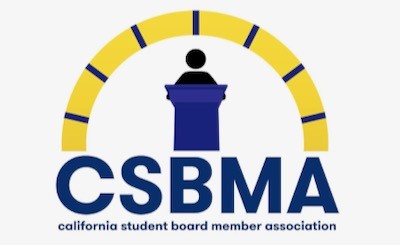
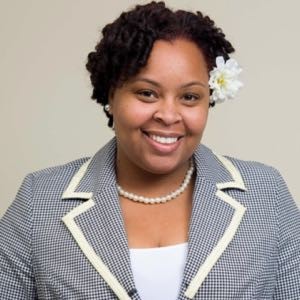


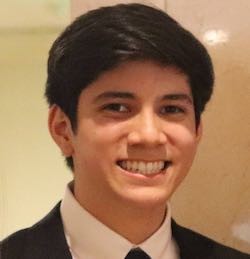
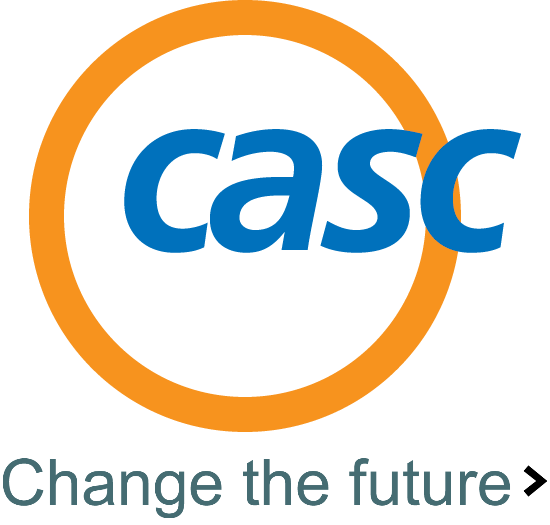
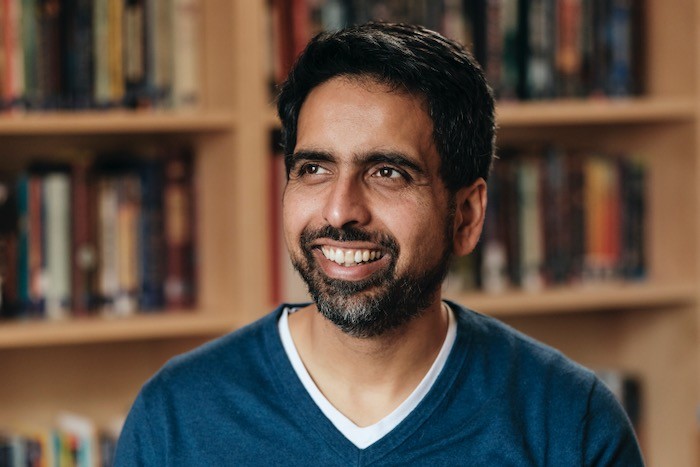









Questions & Comments
To comment or reply, please sign in .
Jennifer Johnson September 8, 2020 at 5:54 pm
Alisa Sabshin-Blek August 24, 2020 at 12:57 pm